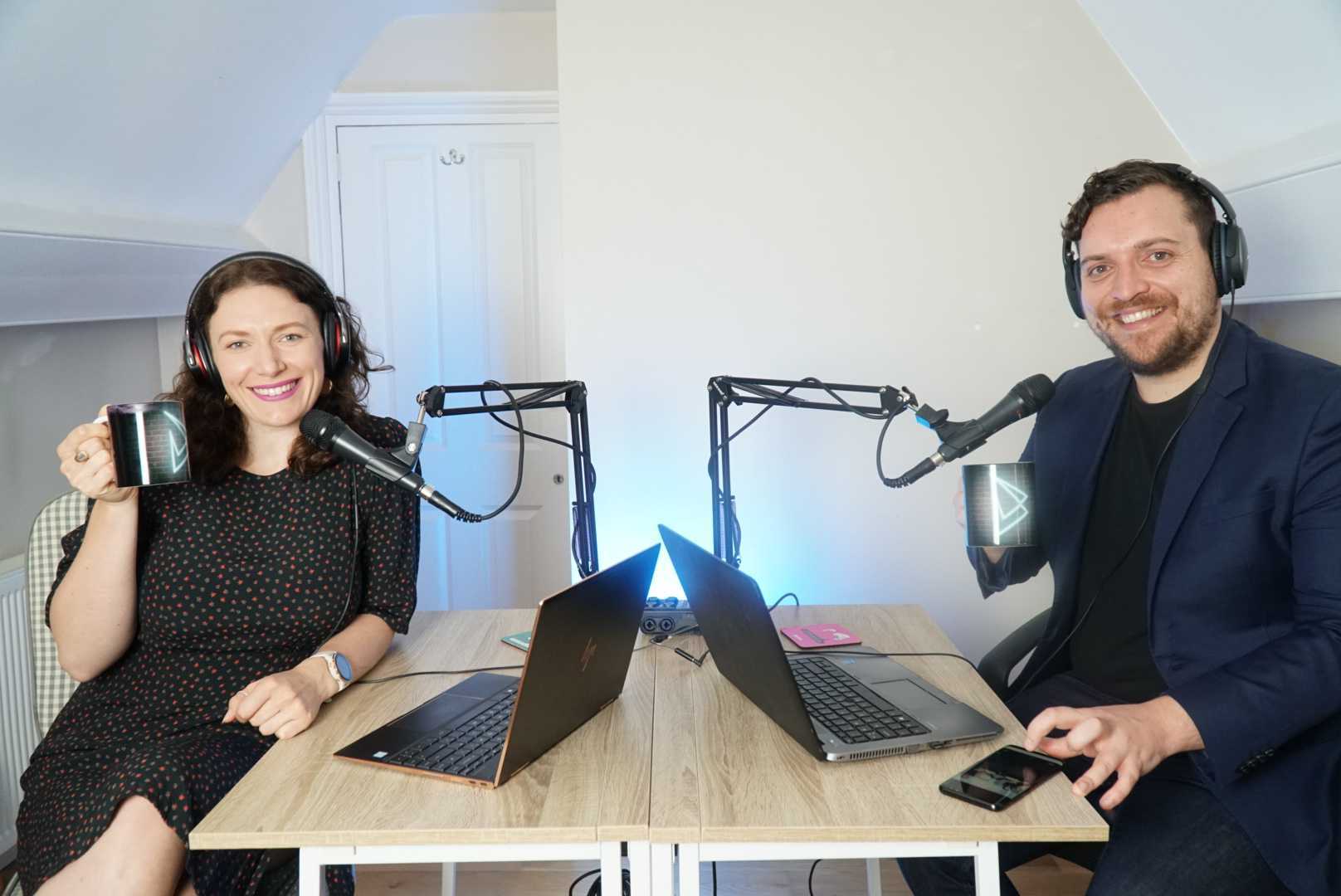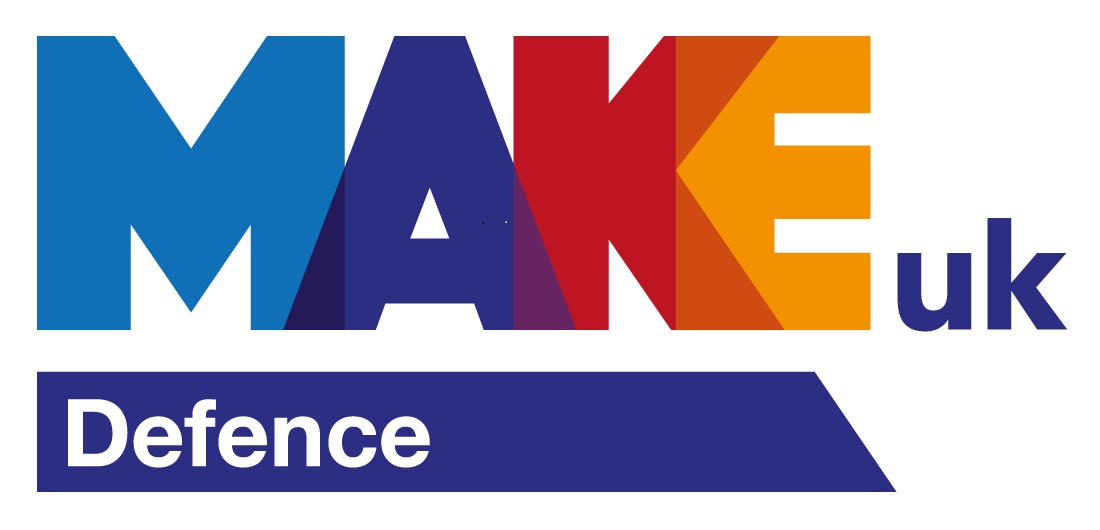Defence Media’s In Discussion Podcast – Ep. 1 ‘The pros and cons of a virtual event’
29.07.20


29.07.20

Transcript
Grant:
Hello, and welcome to Defence Media’s first ‘In Discussion’ podcast. Thank you for joining us for the first episode. You might have seen some ‘In Discussion’ videos already on YouTube, but this is going to be a podcast dedicated to basically marketing and communications in the aerospace and defence sector.
If you don’t know me already, my name is Grant Turnbull. I’m the Digital Content Director at Defence Media. You might notice that we’ve got basically a little bit of a new format going on here. We’ve got a little podcast and video studio setup in the Defence Media office. For the first time we’re joined by my colleague and co-founder at Defence Media, Beth Stevenson. Welcome to the podcast, Beth.
Beth:
Thank you.
Grant:
So you’re the editorial content director, aren’t you, at Defence Media? What does that entail?
Beth:
So I take the lead on all of our editorial projects, whether that’s copywriting, blog writing, white paper writing. Anything with the written word.
Grant:
Anything with words.
Beth:
Yes, anything with words!
Grant:
Yeah, good stuff. You might have seen in previous In Discussions, we’ve been speaking to experts in marketing and communications, really trying to delve into a little bit more on what’s happening in defence and aerospace right now, particularly in terms of COVID etc.
So for this podcast for this episode, we’re going to be looking at virtual events. We thought that we’d look at virtual events because the last four months we’ve been kind of in lockdown and we haven’t really had the chance to go to events. They’ve obviously all being cancelled because of travel restrictions etc. So, it’s only in the last couple of weeks that we’ve actually seen several quite high profile events [take place].
So Farnborough RIAT, ILA [and] there’s the Air Power Conference as well that just preceded RIAT and Farnborough. They’ve kind of all given us this digital experience going virtual, instead of us all obviously being able to attend in person. So we’ve had some time to digest some of those virtual events that you’ve been watching.
[Beth] you’ve been watching some of Farnborough.
Beth:
You were watching a lot of RIAT.
Grant:
I was watching more of RIAT! But yeah, you were watching what they basically called FIA Connect, wasn’t it? And you wrote a blog looking at some of the trends, but now we’re going to kind of delve into the virtual events themselves, and whether they worked you know, what was good about them, but also kind of what didn’t work. And yeah, I think we’ve kind of got a lot to digest. Some stuff was quite good, but again, some stuff wasn’t. So obviously it’s kind of just something that everyone’s struggling with at the minute in terms of the events calendar having come to a standstill. It was obviously a part of [the diary of] everyone who’s in the aerospace and defence, [and they] most likely went to some kind of trade show in the year. And so now we can’t do that and I think everyone’s struggling in that respect. But yeah, we thought we’d start with the pros of a virtual event. So when you were watching Farnborough connect – FIA connect – what did you kind of see as some of the pros there?
Beth:
I think the scope of sessions that could be accessed probably gives access to smaller players that might not necessarily get much exposure at a show like Farnborough. There were lots of lots of common themes as well, so it kind of seemed like everybody was on the same agenda in that regard. And also then, you know, with that sort of format you can kind of log in as and when you choose to whatever sessions you want to participate in, rather than just enduring – for want of a better word – everything that is put in front of you.
Grant:
I think it was better to get a more top level understanding of what the big issues are at the moment.
Beth:
And there are some clear issues. Obviously COVID-19 is a significant one, but also just in the industry generally that I think would have been common themes of the show if it were a live event, if COVID didn’t happen but might not have been as apparent at such a large show where there’s so much going on.
Grant:
Yeah. It’s quite interesting and we’ve said it before, that obviously Farnborough is not really a conference, is it?
Beth:
No.
Grant:
I mean, there are conference elements there, but it’s all about the big deals. It’s all about the big stands. It’s all about the chalets.
Beth:
Yeah, it’s about how many aircraft Boeing and Airbus are selling and what attends.
Grant:
Yeah, exactly. So it’s a slight detour from what Farnborough is normally about.
Beth:
Yeah, it’s transitioned from an airshow and an announcement show to a conference. But then, I mean, there wasn’t much of an alternative; if Farnborough was still going to happen in a virtual format, I think this is the only sort of format that it could have taken place in.
Grant:
Of course. And one of my kind of positives for these virtual events, you know, whether it’s Farnborough or whether it’s RIAT or the air power conference, is that they are free to attend. I think that’s been really good for the industry that a lot of these events now you can just sign up and you’re there. And that’s, it really, that’s all you need to give your details and you’ll be able to access all the discussion, everything that’s going on. And it’s these shows that were normally maybe thousands of pounds to attend. As an industry delegate, that costs a lot of money. So for the fact that you can just go there for free now it will be really good for a lot of companies, particularly aerospace companies that are struggling at the minute, and particularly small SMEs or maybe third or second tier companies. And they’re not obviously just saving money on the registration costs, they’re saving money on the booths, the travel, the accommodation. And that’s really important. That must be thousands, thousands of pounds, and I think that that’s not going to go unrecognised, especially next year when planning. There’s going to be a lot of planning for what happens or what comes next for exhibitions.
Beth:
And I think there was a lot of discussion pre-COVID about attendance at air shows and lots of companies were scaling back anyway, so I feel this has almost accelerated decision making for some companies in how much they commit to their attendance at these shows.
Grant:
Yeah, I mean companies attending shows is, and the politics behind that, is nothing new. I mean, we’ve seen companies pull out of Farnborough before, we’ve seen companies pull out of Paris air show before, and other shows and it will be an inflection point where they actually have to ask themselves, is it worth it us spending this much money, sending this many people here? I think for some companies, the old school thinking was we need the biggest show at the exhibition. That’s what will set us apart.
Beth:
The biggest presence.
Grant:
The biggest stand, effectively. And I think that’s what they thought set them apart from their competitors. Whereas I think that mindset might change now in the future.
Beth:
Quality over quantity, perhaps.
Grant:
Exactly. Just kind of going back to something like Farnborough and the actual content that was there, for me, as an industry person that wants to learn more about what’s happening right now, for me, the best content was probably the panel discussions which clearly had a lot of people involved. They had a big CEO panel discussion, which you rarely get really, all the CEOs of all the aerospace companies and some defence companies [together].
Beth:
Scheduling means that you can’t usually get them in the room at the same time.
Grant:
Exactly, because they’re probably signing multiple contracts.
Beth:
They’ve got to be the other side of an airshow, if they’re at the show at all.
Grant:
So that was great, and that’s really good. And yeah, I think more of that going forward as part of virtual events should be a number one priority.
Beth:
Yeah, those sorts of sessions, I think [prevailed]. Opposed to the sales pitch-type presentations, which, I mean there were still examples of those as well, [and they are a] bit more one dimensional less engaging, probably had less value. But again for smaller companies, it’s a way of getting some exposure at such a large show where usually they would be kind of lost in the crowd.
Grant:
Yeah, and it was a lot. Farnborough…I think it was over a hundred of either panel discussions or webinars, seminars, whatever you want to call them. I would say that’s maybe too much, but we’ll likely discuss that a little bit more in this podcast.
Something for me as well with the virtual event, and now we’re not just discussing virtual events as in the Farnboroughs or anything that’s linked to an actual show, I think a lot companies now want to do a virtual event which normally revolves around a virtual stand.
I think they are good from a PR perspective, and you can actually anchor a date and you can anchor news onto that week, and you can say, this is what we’re going to announce this week. So you’re effectively replicating the event that should have been. And you’re saying, okay, because it’s this date, we will announce this. And then you normally get the trade press or even national press to pick up on that. And so I think that’s good from that perspective; I think it builds that kind of excitement for a set date in the calendar.
So I think that that’s good, whether that is the most important thing? Yeah, that’s another question, but I think what a lot companies have been able to do with Farnborough particularly, and maybe what the RAF was able to do with the air power conference, they actually had set dates that they knew they were going to announce things which is good.
And obviously then it’s pinned onto a particular event, and it’s an old school PR way of working, but it does work and there was lots of press coverage for certain elements of the Farnborough and certain elements of the air power conference in terms of Tempest etc.
Beth:
Our industry can be a bit chaotic, so giving people a time and a virtual place to be I think probably has its merit for some people.
Grant:
Yeah, particularly trade press. To give them a week where they’re going to get lots of stories is probably good.
Beth:
But even like during a live event, you still need set times for announcements and briefings and usually trade press appreciate that because they know where to be at particular time, so kind of replicating that in a virtual form, I think probably at least mimics the live event to a certain degree.
Grant:
Yeah. I think I suppose this is another positive of a virtual event just for the journalists. And also for the business people that go there, if they’ve got meetings in various places that’s tiring and, you know, an exhibition or a conference, they can be tiring. It’s a lot to do, you know, [and] obviously from our backgrounds as journalists they were always the kind of the toughest weeks.
Beth:
From a scheduling perspective, having everything in one ‘pot’ and then planned out is far more organised than trying to be this end of the airfield for one press briefing, and then somehow you’ve got to be the complete other end five minutes later. And then back again. So at least it was almost like everything was taken in and scheduled, assuming that people were announcing through the main FIA Connect format rather than through their own channels. So there was that benefit, that you can actually see everything that was going on almost in one place and decide what you want to do.
Grant:
Yeah, I think a lot of journalists – looking from almost like a PR side of things – a lot of journalists are probably appreciating the virtual element at the minute. As well, I suppose cost is a big thing at the minute for everyone. So the fact that you’re not paying for flights and you’re not paying for a hotel to go to these events is a huge bonus at the minute.
Beth:
It doesn’t just cost to exhibit and pay for tickets and so on. It is all of the logistics around [it]; again, you’re paying because people are taken out the office for a week at a time and they’re not doing their day-to-day job. Yeah, it’s time consuming and monetary consuming.
Grant:
I think it’s a relief for a lot of people that these events are virtual.
Beth:
Yeah, especially obviously with what’s going on. But also I think anyway, because [for] the industry I think budgets are an issue even prior to what’s happened with COVID.
Grant:
Yeah. It also means that people can dip in and out they can go for a cup of tea.
Beth:
Yeah, and they can also do other meetings.
Grant:
They can do the meetings, or they can just do their general day to day.
Beth:
Login for whatever presentation takes their interests and what benefits them. And then go back to doing their day to day job, rather than having to take a week out of their normal working life to attend an event. Going to a conference, for example, not everything is going to be relevant to you, but you have to endure it to almost kind of justify the cost of attending. For a lot of people it costs a lot of money to attend a conference.
Grant:
These are all kind of positives that we’re seeing at the minute. I just wanted to mention virtual RIAT.
Beth:
That was your favourite, although you’re not biased!
Grant:
I’m a big aviation nerd and self-confessed av geek, and I just thought it was very well done. I think that it’s clearly a challenging time for RIAT as well, because obviously most of their proceeds from that show go to charity, and so they’re not going to be able to make as large a donation this year. So that’s an issue, but they’ve still recognised that there’s aviation enthusiasts out there that will welcome like some kind of virtual event. I would say they put on a really good event.
Beth:
But ultimately at the end of the day RIAT is an air show and people want to see aircraft flying, but I mean, given the circumstances, it was a great alternative and they did the best with what they were permitted to do. But going forward, I doubt very much that that will be a format that they will continue with because as much as RIAT has kind of transitioned slightly to a business show, it’s still an enthusiasts show, and people still want to see the flying.
Grant:
Absolutely, yeah. And obviously that now I suppose, brings us into the negatives and cons of virtual events, and unfortunately I think that there are a lot of them at the minute. I don’t assign any blame to anyone for this.
Beth:
Oh yeah, people are just adapting to what’s happened.
Grant:
People are trying to adapt to a very difficult situation and they’re being kind of forced into situations that were just not planning for. They’re trying to make the best use of technology when sometimes a technological solution just doesn’t exist for some of these things.
Unfortunately that’s just what we’re in at the minute. And it’s a huge learning process for a lot of people, and they’re [almost] being forced into particularly going digital. Especially our industry – aerospace and defence – is probably not the most forward thinking when it comes to digital and utilising digital and virtual channels.
So it has been an almost kick up the backside for a lot of these people. But again, as I say, and I want to stress that, you know, everyone’s going through a very challenging time at the minute, and I think people are genuinely trying to do their best.
For me particularly, I think at the minute is that events are about relationship building. I think fundamentally it’s about showing your face, whatever role you’re in.
For me in the past, and I know for you as well as a journalist, it was reputation building for us as journalists, because we wanted to show people that we were there, we were representing a certain publication, we were an expert in a certain field, and we wanted to build that relationship with either a procurement official or a military officer or someone in a company.
And the more times you saw that person, the more times you could interact, the better the relationship got and the more they could trust you to give you information etc. And I think that that’s fundamental.
It’s always good to go to an event and see people and catch up with them, build new relationships, just talk. Oftentimes you’re not even talking about work, you’re talking about other things, you’re just talked about being at the show in a certain country. It’s those relationships that are slowly built over time that you’re basically not getting with the virtual event. And I think that’s fundamentally where potentially the biggest gap is at the minute for a virtual event.
Beth:
It’s almost like chance encounters a bit more at a show rather than scheduling in this half an hour, because we want to talk about this one thing. Again, showing your face seeing what’s going on, picking up on things.
Grant:
The end of the day, or what have you, or in the hotel.
Beth:
It’s a small industry at the end of the day surrounding these shows.
Grant:
Exactly. I think for me at least, I think the biggest replacement for that has been LinkedIn. I just think LinkedIn is designed for people to connect and to share ideas much in the same way as you would at an event when you meet someone. And for me personally, that’s what I’m channeling into LinkedIn. Other people might have other ways to do it.
They might just pick up a phone, and fundamentally that could just be the alternative – phones still exist! – And you don’t have to do it with Zoom call or anything like that. Email still exists, you can still email people, but I think it’s that exchange of ideas. As well, you have a lot of likeminded people in the same place at the same time, which is also so valuable. It’s so valuable just for sales people.
Beth:
Kind of leading on from that some of the feedback from these virtual events has been that they are very one dimensional. They’re very ‘somebody talking at them’. There isn’t a Q&A, or there’s a limited amount of Q&A at the end.
So it’s far more like a sales pitch, which doesn’t have to be held during an event. There’s nothing hinging it on that event, it just happens to be through the format of a show that’s going on that week. So I think one thing is that lack of engagement. Especially for us formerly as journalists, that would be something that would be quite frustrating and missing: the opportunity to grab an industry official at the end of a briefing, or grab a minister, just to be able ask that one question.
Grant:
I completely agree, and we obviously still have a lot of friends in the trade press. I think one of the biggest criticisms is the fact that the Q&As are just not really there. And I think for a lot of journalists, they like a scoop.
Beth:
Yeah, they like their own twist on maybe the same stories everybody’s producing, but their own little slant on it, which you get from those engagements.
Grant:
A virtual conference or a virtual briefing is not giving that.
Beth:
Whether the technology is not there or hasn’t been invested in to be able to facilitate it, or just a case of managing it or time. Whatever the reason, from what I’ve heard it’s something that’s been missing.
Grant:
But I suppose at the same time, a virtual press conference is again nothing new. We’ve all jumped on a phone call.
Beth:
And some of the larger aerospace OEMs kind of did it anyway. Ones that are based abroad so that foreign journalists didn’t have to be ferried over, that they could log in from their own countries and then still participate. And they managed to do the Q&A quite effectively; it’s very much a thing, and has been for some years.
Grant:
I think this is also going to be another mindset for companies that they realise that they can do a lot of this virtually. I think that things like press trips and things are likely be scaled back. Just because the virtual element is good and it’s a good alternative, but I can understand the frustration of – whether it’s trade press or other people – that just want more information about something. But again, it might be now that if people do want more information, it goes through the website…or other formal channels. But yeah, I can understand the frustrations.
Beth:
Yeah, it can very much be a new way of doing press conferences and so on, but like we’ve been saying, it doesn’t necessarily have to be hinged on a particular week at a particular time, like during when a trade show was meant to take place. You’re probably going to get more engagement if it’s on a non-show week, because you’re not being drowned out by other people’s announcements.
Grant:
That’s a good point. I think that really in this area companies should be doing more virtual product launches and things like that, that aren’t necessarily assigned to a show week. If you want to launch a product on a random week in September, do it, and make sure that you have the marketing machine going beforehand. Get people to come when you say you want them to come.
Beth:
Control it, control your own messaging, control your own launch, your brand.
Grant:
And if they can’t make that, prerecord it and it’s going to go afterwards and they’re going to be able to access it afterwards.
Beth:
I think that was one takeaway as well: if you’re going to invest in content generation even if it’s through an event organiser, like for example, Farnborough or RIAT or so on, invest in your own content generation and then the expiry date isn’t that week.
The problem with launching something, attaching it to a show, is that by the end of the week, it’s almost expired. Nobody wants to know it the following Monday. Whereas if you generate your own content organically, you can exploit that content over and over in many different formats: film a video, then you can turn it into a podcast, you can do a blog off the back of it. But as soon as you attach a date[line] to it, it almost is its own problem.
Grant:
Yeah, this brings me to a real pet peeve of mine. The fact that these companies, the event organisers, are putting date limits on virtual content, it just seems a ridiculous decision. And the issue as well is that companies who are doing virtual stands are only doing it to a certain date. That content is going to be there, you’ve probably paid for the internet storage and the domain etc. Just, you know, leave it there.
Beth:
That also is kind of follows on from your pet peeve of having to supply your details to be able to access content.
Grant:
Yeah, absolutely. And we’re finding more now that the only people that are really doing that are event organisers because they need to use all that data to do an after action report and potentially to mine that data for other purposes. And now we basically tell our clients to not what would be called gating content. You don’t need to do it, it’s an old tactic. People will just come to view your content, get the information that they want.
If they do want to engage with you further in terms of a sales process, they will get in contact with you. And if you’ve not provided the information that means that they will convert to a sales lead, then you need to start then thinking about your content and what content you’re putting out.
Beth:
Obviously we’re not privy to the commercial relationship between people that were on the panels and had presentations last week and the organisers, but if you are paying money to attend virtually and then your content is gated as soon as the week’s over, but you’ve put that time and/or money into doing that presentation and then no one can access it unless they registered before a particular date. I would be slightly upset by that. Whereas if you generate the content yourself and it was on your own channels and your own website, it’s your choice who can access it at what time.
Grant:
And I think from that perspective, just get content out there. The old school playbook of putting an ebook out, or, you know, a lead magnet as such, and getting people to sign up for it, it’s not really working anymore.
Beth:
In a world where there’s just content everywhere. If your content is gated or you aren’t producing enough content, you’re going to be drowned out by your competitors that are producing all this content, and they’re giving it to you for free because they want you to see it.
Grant:
We shouldn’t forget that it should be educational. People should be learning from that content. If you’re always putting content out that’s just a sales pitch – and again, something that we’ve seen from the virtual events is that a lot of the time, the videos that are put out are prerecorded messages from a senior executive – that doesn’t really add any value.
Beth:
You might as well read it in written format. It may as well be press release, quoting that particular executive.
Grant:
I do struggle to see the sense of some of the content choices, and especially these gating options that some events companies are doing, I’m sure there’s reasons. I’m sure there are commercial reasons that as you say, we’re not privy to but standard practice these days is just not to do that.
Beth:
A few years ago, maybe, but now we’re flooded with content.
Grant:
Unfortunately what’s happening is that people are replicating exactly the real world. So they’re saying this is only available for a week. This is a virtual stand and it’s everything apart from that kind of real world engagement, and that’s it. Which I think is wrong. And it kind of brings me to – as we kind of start to somewhat – we kind of want to give advice to people that are thinking about a virtual event, a virtual stand, taking part in a virtual exhibition what kind of what considerations they need to make.
I would say at the minute that a virtual stand, I don’t see a big benefit in them. I know a lot companies have done them, but I think that just that straight replication of a stand, I don’t think it adds any value. Most of what’s on a virtual stand is just a pre-recorded video and some data sheets. I could get that already from a webpage.
Beth:
I understand why people have done it this year, because it’s been a very challenging year, and it was almost replacing what would have been a live event.
I think all things considered it’s been adapted very well for something that wasn’t planned for, but I think going forward – and I hate to use the word – but if this sort of thing happens again next year, it’s not going to be unprecedented anymore. You can plan, and you need to plan, for something as extreme as what’s happened this year, because we’ve been through it and we’ve kind of adapted and we’ve done our best.
But I think going forward, you’ve got the foresight to examine where best to spend your money, your time, your resources.
Grant:
I completely agree. For me at the minute, we’re constantly looking at how to improve that digital experience. And it’s probably one of the biggest challenges at the minute, really. For me, when it comes to virtual events, some of the best I’ve seen are more along the lines of news broadcasters and and how they broadcast from a studio.
Beth:
Which can include livestream.
Grant:
Yeah, of course. So I think that replication of kind of a studio. We’re doing it on a very small scale here, but I think that the budget that now can go into a studio kind of setting, I don’t think it has to be that big, especially when compared with attending a defence exhibition.
Beth:
Yeah. If you’re going to make the decision to transition to controlling more of your messaging yourself and doing a lot more of your content yourself and not just relying on trade shows, that is a small investment that will pay off, and will pay dividends, ultimately.
Grant:
If you’ve got a meeting room in your company office, there’s a good chance that you could probably just set it up as a little podcast studio or a video studio like this. So I would look into how you generate content in a digital capacity. I’m shooting myself in the foot here, but you don’t have to depend on outside contractors, you can do it yourself. If you do need that help, obviously there are people like us out there that can do it, but you can do it with a very small team.
Beth:
If you’re making that decision to save on your budgets that you’d usually allocate to shows, that’s a lot of budget that you could recruit somebody with to do it in house.
Grant:
We’re going to talk about this I think a lot this year – on this podcast and in our other content that we’re producing – how important content is going to be. It’s already recognised that you need to be producing a lot of content as a as a B2B company or a B2G etc, but I just think that the sheer amount [is surprising]. Especially when we tell our clients how much they would need to be producing, I think their jaw drops to the floor. Sometimes it’s going to have to be a lot and you’re going to have to start planning, putting the planning in place to create quite a lot of content.
Beth:
And it has to be a variety of content as well. You can’t just invest in one type of content, because it’s not going to reach everybody, or it’s not going to reach all the stakeholders you want to reach.
Grant:
I think that’s a fundamental way of how you almost not replicating the exhibition experience, but you are almost replacing it, you’re not replicating it. You’re giving yourself a much bigger digital footprint, and where more people are likely going to be than a trade show in Paris or a trade show in Bangkok, for instance.
Beth:
The last thing you want is to be known as being a company that just floods the market with press releases for one week a year, and then you don’t hear from them for the rest of the year.Grant:
Yeah, exactly, that’s no digital presence.
Beth:
There are companies like that. They flood you with information for one week and then radio silence the rest of the year.
Grant:
So I think just almost to sum up I think what we would kind of suggest at the minute is to really start going into the process of asking yourself why you would be attending a virtual exhibition or why you would be organising a virtual exhibition.
Beth:
Especially when it’s not reactive. So it’s reactive at the moment, but going forward is not going to be reactive anymore. You can plan. And now is the time to be planning. People plan their presence at trade shows two years in advance, four years in advance. So now you should definitely be considering your ‘virtual presence’.
Grant:
I think one of the fundamental question needs to be ROI – return on investment. Are you getting the value for money from putting a video up on another person’s website? Sometimes yes, sometimes no. You really need to go into the data and the analytics and what you’re getting from it.
Beth:
Which, again, we’re not exactly privy to it, but it’s uncertain how much of that analytics element that you get from third party hosting rather than controlling it and putting it through your own channels and your own website.
Grant:
I’d be very intrigued to speak to more people on for these types of events what impact they do have on sales, whether they can actually assign any revenue number to them whether they get any qualified leads, and things like that. Those are the questions. Whereas I think from digital channels, particularly like LinkedIn, there’s better attribution elements that you can start to assign.
Beth:
If it’s on LinkedIn, it’s usually part of a broader campaign, which you can monitor over time. And as we know, business in our industry is a slow burner. It’s not like B2C, which is more instant. So it’s more of that longevity and campaigning over a long period of time, which obviously you can do on your own channels.
Grant:
So really ask yourself whether one week of content is a good investment or are you wanting to look at a wider campaign? Some companies like the big manufacturers, the big OEMS, they can scale up.
Beth:
And they won’t get drowned out, that content will be read/seen/heard.
Grant:
But I think others, and the vast majority of companies – not everyone’s a top tier aerospace and defence player – I think the vast majority of companies and their marketing teams or their sales teams need to take a really good look at it. And again, as we’ve shown during this podcast, there’s positives and negatives.
Beth:
Yeah. There’s no one answer.
Grant:
There’s no correct answer to this. Everyone’s still learning, as we said at the beginning, everyone’s still learning.
Beth:
And we’re still in the middle of a very sort of confusing time, very challenging time.
Grant:
Everything is still really uncertain. The impact of COVID is going to impact for a long time, so we’ll see. We’re going to talk about this subject quite a lot over the next few months.
Beth:
I’d be interested in here if anybody has any feedback.
Grant:
If you want to get in touch with us, we’re on LinkedIn and we’re on other social media channels. You can either follow us on our main company page [or] you can also follow us on our individual LinkedIn profiles as well.
Thank you, Beth, for joining us, you’ll be a regular co-presenter now.
Beth:
You won’t be able to stop me now!
Grant:
Fantastic!
But thank you for joining us all, and we hope we hope you enjoyed the episode. See you next time!


Signatories of:


Members of:



Innovation House
Molly Millars Close
Wokingham
RG41 2RX